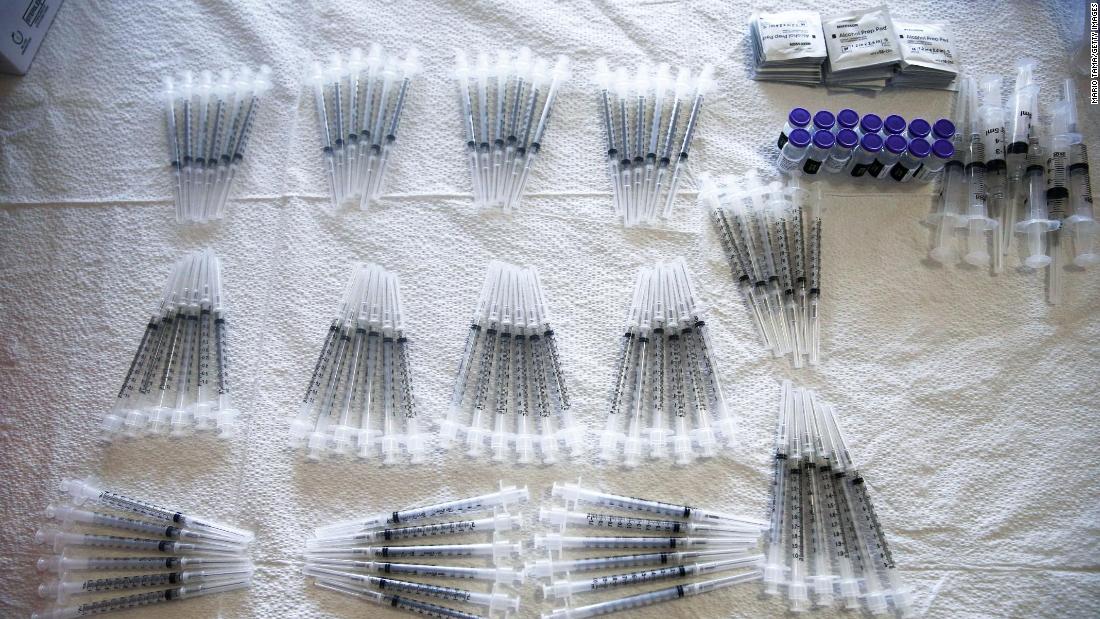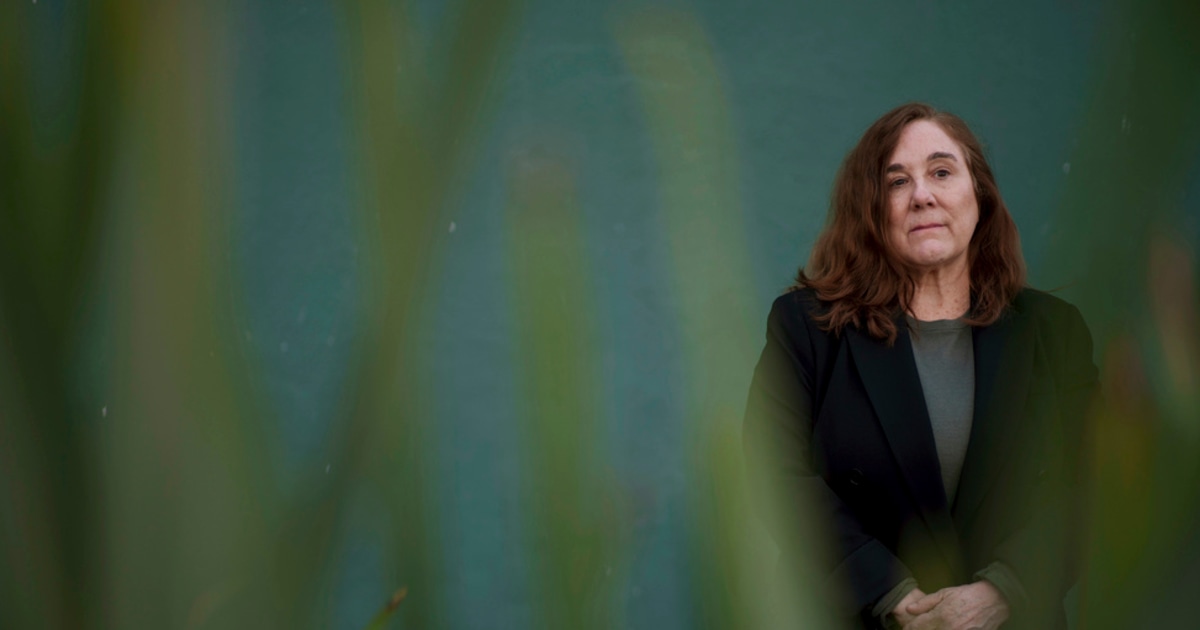Vatican: It is moral to receive a vaccine against covid-19 6:18
(KHN) -
In Northern California, a megachurch pastor distributes religious exemption forms to parishioners.
A New Mexico state senator "will help him articulate a religious exemption" by pointing to the use of decades-old aborted fetal cells in the development of some vaccines.
And a Texas-based evangelist offers exemption letters to anyone, for a suggested "donation" starting at $ 25.
With workplace vaccination orders out in the open, opponents are turning to a tried and true remedy to avoid getting the COVID-19 vaccine: the claim that vaccination interferes with their religious beliefs.
Covid-19 treatments do not contain cells and tissues from aborted fetuses
No important affiliation is opposed to vaccination.
Even the Church of Christian Science, whose followers rely heavily on prayer rather than medicine, does not impose an official policy.
It advises "respect for public health authorities and conscious obedience to the laws of the country, including those that require vaccination."
And if a person claims that their private religious beliefs prohibit vaccination, that defense is unlikely to hold up in court if challenged, legal experts say.
Although some members of the clergy have jumped on the train against vaccines, they have no obvious justification in religious texts for their positions.
Many seem willing to care for people who refuse vaccination for another reason.
Still, the US Equal Employment Opportunity Commission (EEOC) gives ample leeway to what constitutes sincere religious belief.
As a result, some experts predict that most employers and managers will not want to challenge such objections from their employees.
advertising
"I have a feeling that not many people are going to want to fight on this issue," said Dr. John Swartzberg, an infectious disease expert and professor at the University of California-Berkeley.
Full approval by the Food and Drug Administration (FDA) of the Pfizer-BioNTech vaccine on Aug. 23 could bring matters to a head.
Many government agencies, health care providers, universities, and the military had waited for approval before enforcing vaccination orders.
This is how the full approval of the Pfizer vaccine could impact 0:58
California, which abolished non-medical exemptions for childhood vaccinations in 2015, has led the way in Covid-19 vaccination mandates.
Democratic Gov. Gavin Newsom's July 26 order for state employees and healthcare workers to be fully vaccinated or otherwise tested weekly was the first of its kind, as was a similar statement on August 11 for all public and private school teachers and staff.
California Will Require Regular Immunizations or Tests for Teachers and School Staff
The California State University system made up of 23 universities joined with UC in requiring vaccination of all students and staff, and companies such as Google, Facebook and Twitter have announced a mandatory proof of vaccination of their employees for those who they return to their offices.
The University of California requires proof of vaccination for all staff and students at 10 of its universities, a decision that potentially affects half a million people.
But like many other companies, it leaves room for those who wish to apply for an exemption "for medical, disability or religious reasons," adding that it is required by law.
Nothing in history suggests that large numbers of students or staff seek such an outlet, but no previous conversation about vaccines has been as overtly politicized as the one around COVID-19.
Increased stress and depression due to covid-19 1:22
The politicization of vaccination
"This country will follow orders. It just is. All other alternatives have been tried," said Dr. Monica Gandhi, an infectious disease expert at UC-San Francisco.
"That phrase, 'religious exemption', is very big. But it is going to be quite difficult in the current climate - in a massive health crisis, with an ongoing vaccine that works - to just let such religious claims go by."
In fact, while emerging anti-vaccine churches have long offered reluctant parents ways to exempt their children from getting vaccinated, these days churches, Internet-based religious businesses, and others appear to be offering bulk vaccination exemptions.
Cardinal anti-vaccine in the US is hospitalized and on a ventilator
Dr. Gregg Schmedes, a Republican state senator and otolaryngologist in New Mexico, used an Aug. 19 Facebook post to direct healthcare workers "with a religious belief that abortion is immoral" to a site he is trying to catalog. the use of cells from aborted fetuses to test or produce various covid-19 vaccines. A vaccine distributed in the US, the Johnson & Johnson product, is made using a cell culture that originated, in part, from the cells of the retina of a fetus aborted in 1985.
However, the Vatican has considered it "morally acceptable" to be vaccinated against covid-19.
In fact, Pope Francis declared it "the moral choice because it is about his life, but also about the lives of others."
In a growing number of dioceses - Chicago, Philadelphia, Los Angeles and New York, among others - bishops have instructed priests and deacons not to sign any letter that provides the church's imprint on a religious exemption request.
Schmedes did not respond to questions posed by KHN via email.
Cuba vaccinates children against covid 1:55
Meanwhile, in the Sacramento-area town of Rocklin, a church that openly defied Newsom's closure orders last year has delivered hundreds of exemption letters. Greg Fairrington, pastor of Destiny Christian Church, told church service attendees: "No one should be able to demand that they get vaccinated or they will lose their job. That is not right here in America."
EEOC guidelines suggest that employers make "reasonable accommodations" for those who have a sincere religious objection to a workplace rule.
That could mean moving an unvaccinated employee to an isolated part of the office or offering him or her a position that involves less interpersonal contact.
But the employer is not required to do anything that results in undue hardship or involves more than a "
de minimis
" cost.
ANALYSIS |
What the ivermectin debacle reveals about anti-vaccine hypocrisy
As for the objection itself, the commission's advice is vague. Employers "should normally assume that an employee's request for religious accommodation is based on sincere religious belief," the EEOC says. Employers have the right to request supporting documentation, but employees' religious beliefs do not have to adhere to any specific or organized faith.
The distinction between religion and ideology is blurred among those seeking exemptions. In Turlock, California, a preschool teacher received an exemption letter from her pastor, who offered the documents to those who felt that receiving a vaccine was "morally compromising." When asked via direct message by KHN why she was seeking the exemption, the woman said she did not feel comfortable being vaccinated due to "what's in the vaccine," then added: "Personally, I'm above the ' Covid 'and the control that the government is trying to implement over us! " Like other exemption applicants, even those who have posted to anti-vaccine Facebook groups, he feared that other people would know he was seeking an exemption.
OPINION |
Let the unvaccinated pay for their deadly decisions
A surgical technician working at Dignity Health, which ordered its employees to be fully vaccinated by Nov. 1, said it was waiting for a response from the company's human resources department to its request for a religious exemption.
She freely explained her reasons for applying by referring to two passages in the Bible and listing the ingredients in the vaccine that she said are "harmful to the human body."
But he didn't want anyone to know that he applied for the religious exemption.
The right of a state to require vaccination has been established in law since a 1905 Supreme Court ruling that upheld mandatory smallpox vaccination in Massachusetts. Legal experts say that right has been repeatedly upheld, including in a 1990 Supreme Court decision to the effect that religiously motivated actions are not insulated from law, unless a law designates religion as underprivileged treatment. In August, Supreme Court Justice Amy Coney Barrett declined, without comment, a challenge to the Indiana University rule that all students, staff and faculty must be vaccinated.
"Under current law, it is clear that no religious exemption is required," Erwin Chemerinsky, dean of UC-Berkeley law school, told KHN.
Clearly, that doesn't stop people from looking for one.
Judge: Hospital may demand to be vaccinated against covid-19 1:09
vaccination coronavirus Covid-19 vaccination





/cloudfront-eu-central-1.images.arcpublishing.com/prisa/JDPNHS3CHAKZLL535F4Y3ASYDQ.jpg)

